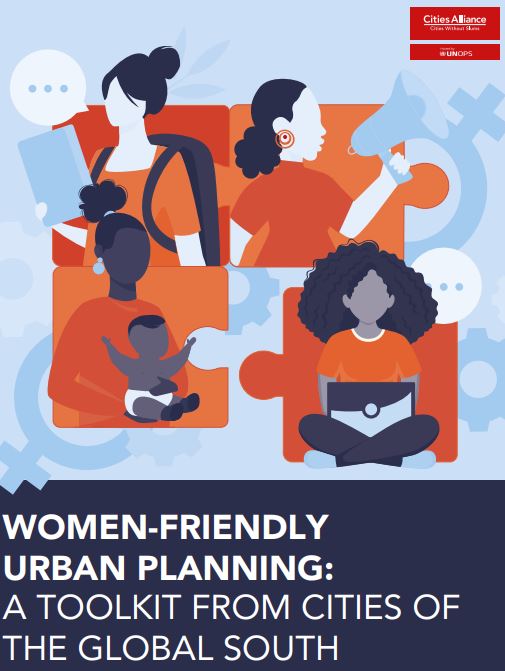Women-Friendly Urban Planning Toolkit
Toolkit from Cities of the Global South

Cities Alliance launched the new Toolkit for Women-Friendly Urban Planning from Cities of the Global South. The Toolkit provides local governments, civil society organisations, and urban practitioners with the tools and knowledge to incorporate women's and girls' needs and voices in urban planning.
Intended for urban development professionals and city officials, the Toolkit for Women-Friendly Urban Planning addresses the need to know more about how to engage women in participatory processes, with a focus on cities in the Global South. It has been produced by Cities Alliance in collaboration with Womenability and sponsored by the Swedish International Development Agency (SIDA).
The toolkit provides detailed explanations and specific tools and activities for each phase of the project cycle. By catering to all possible biases and problems specific to gender issues, these tools provide solid elements to best mobilise women in urban projects. They have been used in specific development projects and initiatives, especially in informal settlements and communities.
The toolkit is divided into two main parts:
- The first part presents the various steps for gender mainstreaming within the participatory process throughout the project cycle.
- The second part explains how to design gender-fair participatory processes, giving insights on the necessary data and tools to choose, how to maintain them and how to communicate in a gender-sensitive way using examples.
Abstract based on original source.


Comments